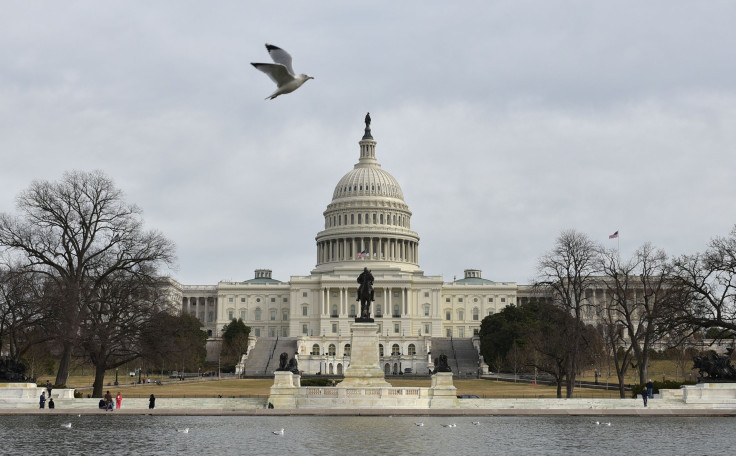Congress Needs A Trial About The Real Corruption Influencing Politicians

And so, the impeachment circus begins. For the next few weeks, expect the media and every politician to be consumed with the daily ups and downs of public impeachment hearings. After the House hearings conclude, if they vote to impeach, we’ll have a two-month trial in the Senate of Donald Trump. Don’t expect much legislating to happen, and don’t expect much productive discussion about our country’s long-term dysfunction either.
Instead, for those Americans who want Congress to start providing real solutions to our many real-world problems, expect only cruel irony during the impeachment circus. The irony will be about all the talk of “corruption” you’ll hear. The President’s defenders will argue that he wanted to root out legitimate corruption in Ukraine when he requested the Ukrainian president undertake various investigations. The President’s detractors will instead claim that he corruptly tried to use his office for personal political gain. The irony will be that we’ll hear all about corruption—except this talk has nothing to do with the kind of corruption that most Americans really care about and that matters to their lives.
The kind of corruption that should be on trial for all to see is not contained in secret phone calls to foreign leaders. Rather, the truly destructive kind of corruption is fully legal, and it happens every day at Congressional fundraisers, in the halls of Senate office buildings, and at lobbying firms in D.C. and across the country. It is the corruption that occurs when our politicians become beholden to wealthy individuals and special interests that fund campaigns and write massive checks to Super PACs. This is the corruption that creates a constitutional crisis every day.
This corruption has been called “institutional corruption,” because there are no briefcases of cash handed under the table in direct exchange for, say, a tax break, or mining lease, or government contract. No, this is a deeper corruption that has infected the whole of Congress, and it occurs because Congresspeople are so busy raising money and then responding to what their donors want that Congress is unable to solve the problems of most Americans. Americans know this kind of corruption well—that’s why Donald Trump’s pledge to drain the swamp (if only!) and Bernie Sanders’ promise of a political revolution (as if!) both get such rapturous applause.
I wish that Congress could hold a trial around that kind of corruption. If we had it, then Americans would hear about the fact that Congresspeople spend more time raising money than legislating or responding to their constituents. They’d hear about how politicians lavish attention on big donors and give short shrift to everyday voters. They’d hear about how the agenda in D.C. is shaped by industry lobbyists, and how even the few big laws that are somehow passed—like Obamacare or the Trump tax cuts—must be acceptable to corporate groups and wealthy individuals, but not necessarily to average Americans.
And this trial of the real corruption would explain how the ocean of money hurts real people in both parties. It prevents Congress from acting on common-sense gun regulation that more than 80% of Americans support. It leads the Trump Administration to open public lands to drilling and mining by companies backed by big donors, and to put detained immigrants in private prison facilities built by companies who are big Republican donors. And this constant need to raise money scares away from politics far too many sensible problem solvers who are beloved by their communities but aren’t members of the privileged few who can raise a few million bucks every election cycle.
The beauty is, if Americans voted to convict Congress of engaging in this kind of legal, institutional corruption—and I’m sure they would—we could then quickly put in place solutions to help combat it. Several cities and states have begun using small-donor matching programs or voucher programs that work by magnifying the impact of small donations so that Super PACs and wealthy donors have less relative influence over politicians. These programs can easily be expanded to apply in federal elections. They work by applying a strategy modeled on the old “if you can’t beat ‘em, join ‘em” adage: if you can’t stop the flow of money from wealthy donors because of Citizens United, then why not make the donations of all citizens just as powerful as those of wealthy donors? It’s brilliant.
And there are even more great fixes we could implement to reduce corruption and get our government working again. We can curb the rampant gerrymandering that lets politicians choose their voters, rather than voters choose politicians. We can change the way we elect the president so that every vote counts equally. And we can open up primaries and use new voting methods, like rank choice voting, to let more citizens have a say in our political system.
There’s much more we can do too, but to get there, it’s crucial that we keep our eyes on the prize. So, when you watch the impeachment hearings and hear the word “corruption,” use it as a reminder of the real corruption we need to fix. Remember that impeachment won’t actually fix anything. And remember that this is a fight we need to have regardless of what happens to Donald Trump.
Jason Harrow is Executive Director & Chief Counsel of EqualCitizens.US
© Copyright IBTimes 2024. All rights reserved.





















